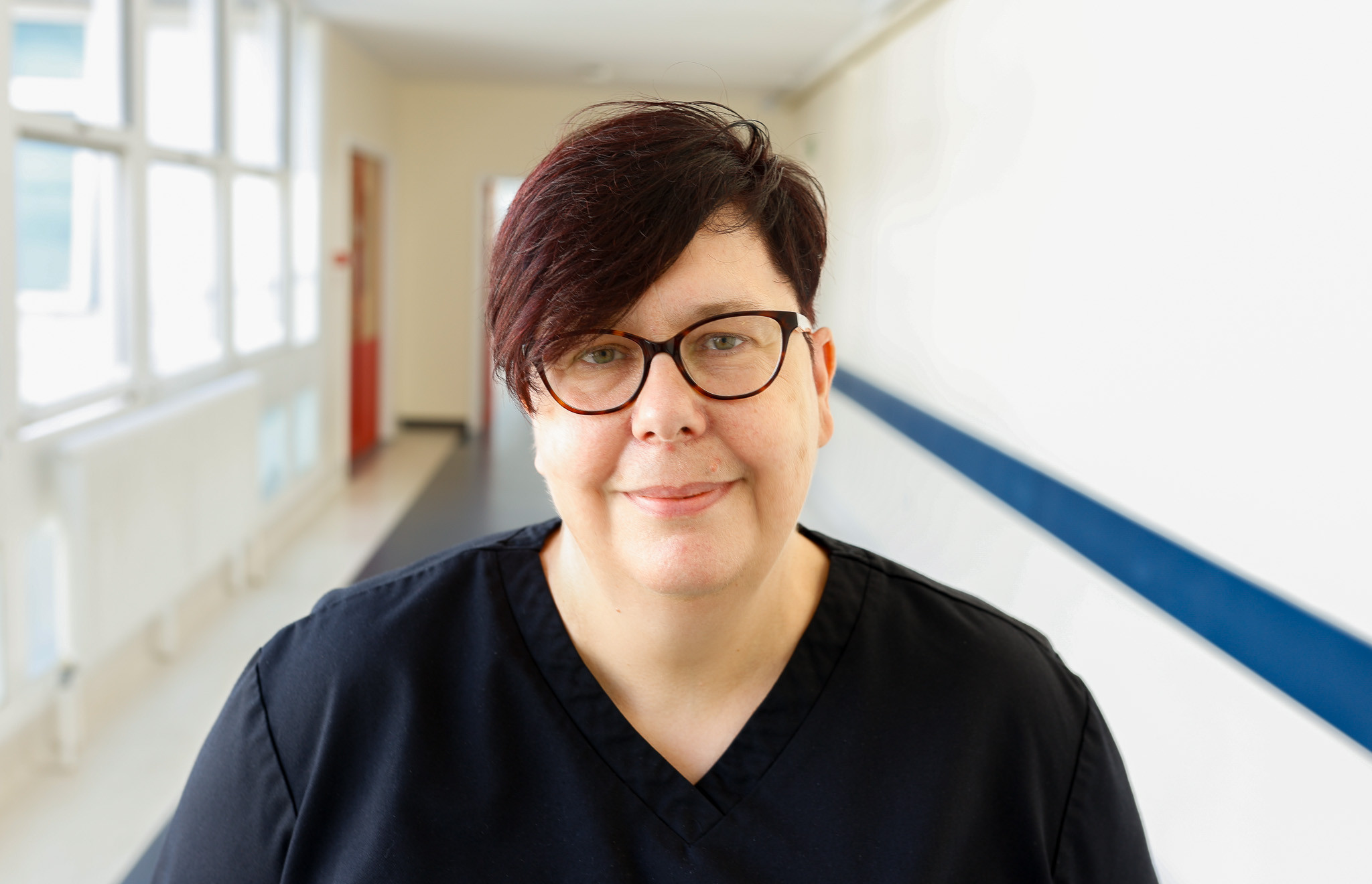
‘I was a patient in intensive care – now I’m a nurse’
Yvonne Mercer knows just how her patients in critical care feel – because she was once one of them.
The 52-year-old mum of two suffered a brain haemorrhage at the age of 24, and ended up in an intensive care unit in London after life-saving surgery.
The experience prompted her to train as a nurse, and specialise in intensive care. She now works as a clinical skills facilitator in the critical care unit at the Kent and Canterbury Hospital, helping to train other nurses and pass on her passion for compassionate, personalised care for all patients, whether they are conscious or not.
Yvonne, who lives in Herne Bay, said: “My experience really gave me an understanding of what our patients go through.
“I remember being suctioned, and it felt like I was being choked with a red-hot poker, and I couldn’t do anything about it. So now I encourage everyone to be honest with patients about what it will feel like and explain the process so they have some warning and don’t panic.
“I also ask colleagues to think about how they might feel, if they are sedated and unable to move but can hear what’s going on. It can be terrifying, and then if people start doing things without warning it’s really upsetting.
“You never know how aware someone is so it’s good practice to always explain what you are going to do, even if someone is sedated.”
Yvonne initially trained as an engineer, building and testing coal-cutting machines for mines, and helped to build one of the machines that built the Channel Tunnel. But as more and more pits closed the industry struggled and she faced redundancy.
Inspired by her experience helping to care for her disabled brother she retrained as a care assistant and worked in a home for adults with severe learning disabilities – until she woke one morning feeling ill.
She said: “The symptoms were very like meningitis, with a stiff neck, vomiting and a severe headache, like nothing I’d ever experienced before and never want to again.
“My GP suspected a brain haemorrhage and a scan at the Kent and Canterbury Hospital confirmed it, and I was transferred to London for surgery.
“I ended up spending a week in intensive care and then faced a long recovery. At the time, eight out of every 10 people who suffered a brain haemorrhage died instantly or in surgery, and of the remaining two, only 0.6 were left with no after effects.
“I feel very lucky to be in that 0.6 category, and I’ve always thought there is a positive reason for everything negative that happens.
“When I become a nurse, and became an intensive care nurse, I could see that positive reason, because I can use my experience to improve care for others.”
Yvonne qualified as a nurse in 2005 and has worked in critical care ever since; finishing her last shift as a student nurse on the unit on a Friday, and starting as a staff nurse on the Monday.
She said: “I have absolutely loved it. I did struggle the first time I had to care for a patient with a subarachnoid brain haemorrhage, as it brought a lot of things back for me, and they sadly did not survive.
“But with a lot of really good support from my colleagues I was able to come to terms with it, and each one after that became slightly easier.”
Yvonne also supports the critical care follow-up and rehabilitation group run by East Kent Hospitals staff for people who have spent time in intensive care.
She said: “We didn’t have anything like that when I left hospital; I was just told to go home and get on with my life.
“But we know there are some long-lasting effects of being in intensive care, including post-traumatic stress disorder and survivor’s guilt.
“The group offers a space to share those feelings and hear others’ experiences. I still remember very clearly some of the hallucinations I had when I was on the unit, including that an Alsatian dog was chewing my leg off, and I could see the bones and tendons.
“Being able to hear that from someone who has fully recovered and is living life can give other people hope for the future.”